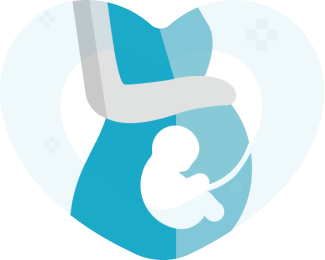Dr. Rudy Quintero is a Board Certified Fertility Doctor with 10+ years of experience performing tubal reversals and including over a hundred of successful tubal reversal outcomes. The procedure is an outpatient procedure (you go home the same day) and is done at our Glendale surgery center. When you schedule your free consultation at CARE Fertility you will meet with a fertility specialist who will take an extensive medical history of you and your partner and address all the concerns you may have.
While there are many other treatment options available, IVF success rates are much higher than other fertility treatment options and may shorten the time to a successful pregnancy.

At least one week before the surgery, you will with out team for blood work, a physical exam and a pelvic ultrasound. The day before surgery our nursing team will contact you to go over any additional questions and you’ll be asked not to eat or drink after midnight.
The majority of tubal reversals are performed via abdominal surgery (a small cut in the bikini area). In some cases, Tubal Reversal can be performed with a Laparoscope, but many times the degree of difficulty to accurately stitch and re-approximate those tubes which are extremely small can limit the success for some patients. It‘s recommended to wait 2 – 3 days before going back to work or resuming your normal physical activities.


About 60-70% of patients will achieve a live birth within the first 2 years. When a pregnancy is first determined, it is important to follow up with your doctor to ensure the pregnancy is not stuck in the tube (ectopic pregnancy) which can occur about 10% of the time.
There are several factors that may lead a Fertility Doctor to recommend Tubal Reversal Surgery, including:
Tubal Reversal is an option for those patients who have had tubal sterilization surgery. The type of tubal sterilization surgery will also be considered, as some sterilization surgeries will have better pregnancy rates than others.
Patients who had clips placed, or who had their tubes tied right after delivery, will in general have more than enough tube to work with. This will increase chances of a successful reconstruction with better outcomes
Fingers at the end of the tube (fimbriae) are essential to pick up the eggs. If it is determined that these were removed during tubal sterilization surgery, then Tubal Reversal surgery will be ineffective.
Smokers and significantly overweight people may experience problems with healing. This is something your doctor will discuss at length with you.
Cesarean Sections can significantly complicate the surgery. Patients who’ve never had one are more likely to have a successful Tubal Reversal Surgery.
Tubal Reversal is an option for those patients who have had tubal sterilization surgery. The type of tubal sterilization surgery will also be considered, as some sterilization surgeries will have better pregnancy rates than others.
Patients who had clips placed, or who had their tubes tied right after delivery, will in general have more than enough tube to work with. This will increase chances of a successful reconstruction with better outcomes
Fingers at the end of the tube (fimbriae) are essential to pick up the eggs. If it is determined that these were removed during tubal sterilization surgery, then Tubal Reversal surgery will be ineffective.
Smokers and significantly overweight people may experience problems with healing. This is something your doctor will discuss at length with you.
Cesarean Sections can significantly complicate the surgery. Patients who’ve never had one are more likely to have a successful Tubal Reversal Surgery.




Discover Personalized Fertility Solutions. Schedule your consultation now and take the first step towards the future you want to build.

Find Quick Answers in our Frequently Asked Questions!
Eliminate doubts, gain confidence and Start Your Journey to Parenthood.
Whether you’re having trouble getting pregnant, want to optimize your chances for a future pregnancy, or need a donor and/or surrogate to help you build a family, we have a solution.
© 2024 CARE Fertility. All Rights Reserved.